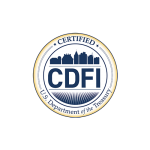Good Money Habits
Developing good money habits is one of the most important life skills you can develop to keep your money and your life in order. Here are seven good habits that can help you get your house in order.
1. Get Yourself Out of Debt
Many experts say focus on the debts that incur the highest interest rate and work your way down to the lowest. However, another equally valid approach is to start with the debt with the smallest outstanding balance and pay that debt off first. This way you see an early victory that can motivate you to tackle the larger debt.
Apply every available dollar into your target debt. Start making payments more frequently than the standard cycle. Your goal is to reduce the amount upon which interest is calculated as fast as possible. This rule applies to every debt.

2. Live Within Your Means
Living within your means requires discipline and patience. If you can avoid the temptation to live beyond your means, your finances will always be extremely healthy.
Be grateful for the life you have. If you can live on what you bring in each month, you are on the path to financial freedom. This does not mean you should stop striving to build a better life, career, and income for yourself and your family. It means you are working towards those goals without falling into the debt trap.
Living within your means brings many benefits. When you reduce expenses, you lower the financial pressure and its accompanying anxiety. When you live within your means you become more aware of all your spending patterns and this leads to making better financial decisions across the board. It also can provide a great deal of emotional freedom.
3. Pay Attention to Your Bank Account
If you don’t know exactly how much money you have to work with, everything becomes confused. Without a firm understanding of what your numbers are, it is difficult to know how much money can you spend, how long will it take you to pay down your debt or how much money can you put into savings this month.
Money is an exact game of dollars and sense and if you don’t know the exact amount of money you have to work with at any one time, you are making the path to your financial goals much more difficult than it has to be.
Money is too hard to come by for you to neglect it once it’s in your possession. Tend to it diligently, and know your numbers. Getting into the habit of watching your bank account will help you stay on track.
4. Set Aside 3 Months of Expenses
Life is full of surprises and sometimes they can be unpleasant. You can get hit with a job loss, a medical expense, or a family emergency. There is nothing you can do to prevent these things from happening, but you should prepare financially for the unexpected.
When faced with an emergency expense, the last thing you’ll want to worry about is how to pay for it. Every household needs a contingency fund. You’ll need an emergency fund large enough to cover three to six months of expenses. Set this money aside in a separate fund so you have to make a conscious decision to access the money. An emergency might surprise you emotionally, but there is no reason it should surprise you financially.
5. Develop Restraint
The temptation to spend money is real. Some of us may have expensive habits that we need to break if we want to become disciplined financially. Learn the difference between your wants and needs. Establish a percentage of income for your “splurge account” and don’t spend beyond that amount.
Restraining yourself from unnecessary purchases is one of the best financial habits you can adopt, however, this is also one of the hardest habits to develop. So here are a few rules to follow.
If it involves taking on any debt learn to walk away. Delay the purchase to a time when you have the cash. Avoid impulse buys online. Once you’ve started to develop restraint, you will start to see amazing things happen with your money.
6. Set Financial Goals
Getting in the habit of setting financial goals is one of the most important things you can do in personal finance. It is one of the key money habits of the wealthy. If you don’t set financial goals, then what exactly are you working toward? Develop a plan to track progress. Make your goals realistic to your situation and upgrade them as your circumstances improve.
Set a goal of saving a specific number for retirement, then work backward to determine exactly how much money you need to invest every month, and the rate of return you need to consistently achieve. Then, you can track your progress along the way, and make adjustments to ensure you get there. Remember people with clear, well-defined goals get things done.

7. Make a Budget
If you don’t use a budget spreadsheet, you need some way of determining where your money is going each month. Creating a budget can help you feel more in control of your finances and let you save money for your goals.
Begin by listing all your fixed expenses. These are regular monthly bills such as rent or mortgage, utilities, or car payments. It’s unlikely you’ll be able to cut back on these, but knowing how much of your monthly income they take up can be helpful.
Next list all your variable expenses—those that may change from month to month such as groceries, gas, and entertainment. This is an area where you might find opportunities to cut back. Credit card and bank statements are a good place to start since they often itemize or categorize your monthly expenditures.
Conclusion
The success of your financial life, really just comes down to one thing: your money habits. Are they working for you or against you? Remember you aren’t stuck with your current financial situation. No matter, what your current habits are, the good news is, you have the choice and the power to change your money habits forever.






